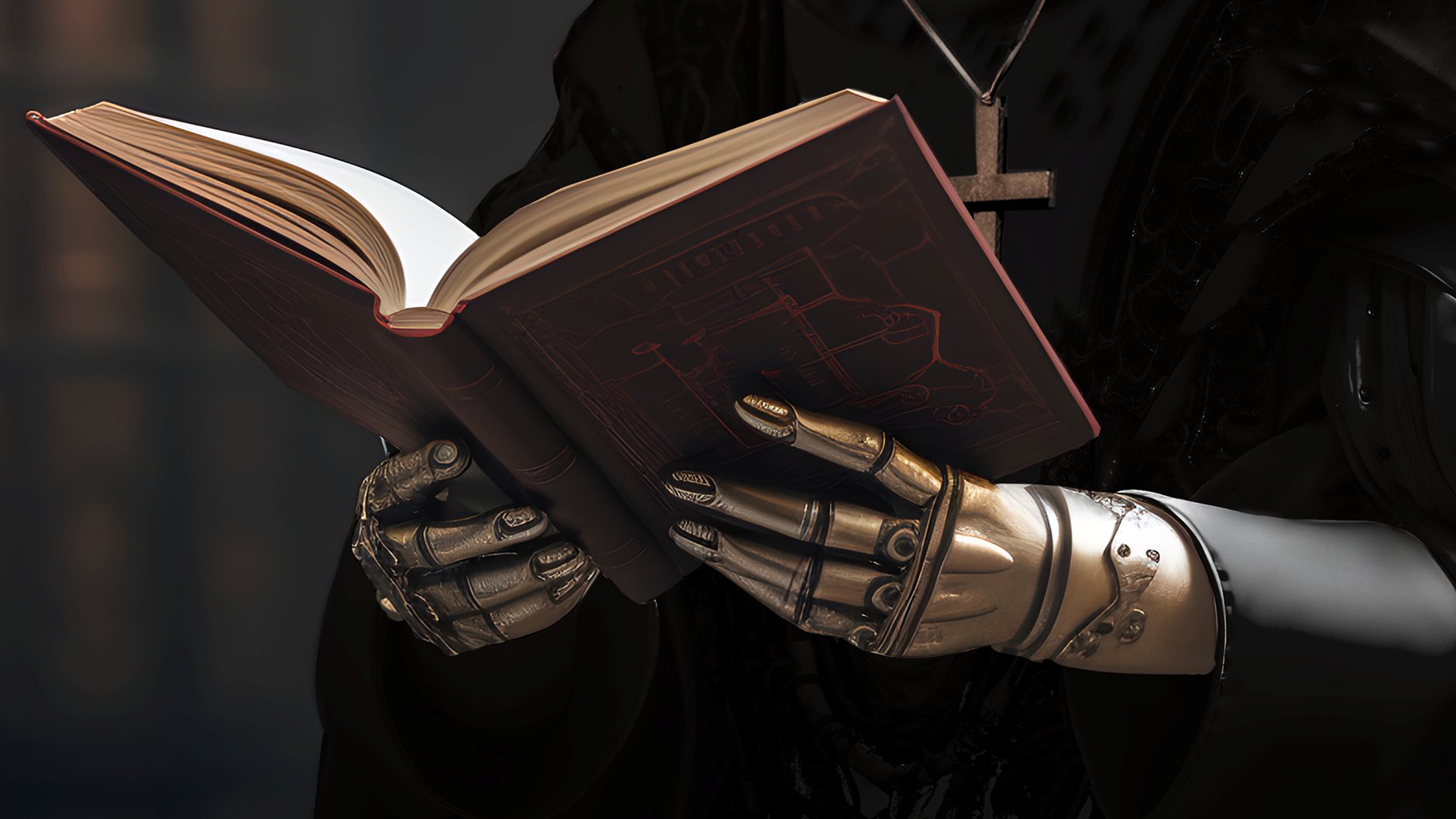Generative AI and the rise of “Bible GPTs” could radically shape our engagement with Scripture.

The pace of adoption for artificial intelligence is unprecedented.
By the end of January, ChatGPT—an AI chatbot that generates brand original content when prompted—had logged 100 million visitors to its site. Before that, it reached 1 million users in the first five days after its release in late November. By comparison, Instagram took 2.5 months to reach 1 million users, and Facebook 10 months.
Generative AI systems like ChatGPT, which can produce humanlike responses to users’ prompts, will undoubtedly shape how we, as the Book of Common Prayer puts it, “read, mark, learn, and inwardly digest” the Scriptures. Indeed, there are already multiple tailor-made AI-driven chatbot systems being used for Bible engagement—which I’ve dubbed “BibleGPTs”—including IlluminateBible.com, SiliconScripture.org, Bible.ai, and OpenBible.info’s AI-assisted Bible Study.
As a digital theology expert, I believe these kinds of “BibleGPTs” will continue to advance, proliferate, and eventually become proprietary systems. And as this happens, the church and its leaders will be prompted to make some momentous decisions about the Christian canon. This will, in turn, influence how we interpret the Bible and impact the future of our faith and practice.
AI-led Scripture engagement will generate new problems.
First, BibleGPTs could reify what I call “concentric canons.” Their databases will require us to precisely define what writings are included in our Christian traditions.
Scripture is our primary canon. When handwritten scrolls became recognized as distinct books, the early church fathers confirmed which writings were considered canon and which were not.
Likewise, with today’s AI databases, someone will soon have to decide which denominational writings and perspectives should be included in the training data of the GPT (which stands for Generative Pre-trained Transformer). And in some sense, these can act as secondary canons—much like the concentric growth rings of a tree trunk.
Imagine a Reformed database, an Orthodox database, and an Anabaptist or Catholic database: Each would require someone to decide which doctrinal writings should be included (“canonized”) and which should be left out. Who will decide, and how? Will it be denominational leaders within these traditions? Will it be tech leaders? Or possibly book publishers who control intellectual property?
The answers to these questions matter, and there’s bound to be controversy surrounding these decisions.
Read the rest at Christianity Today.